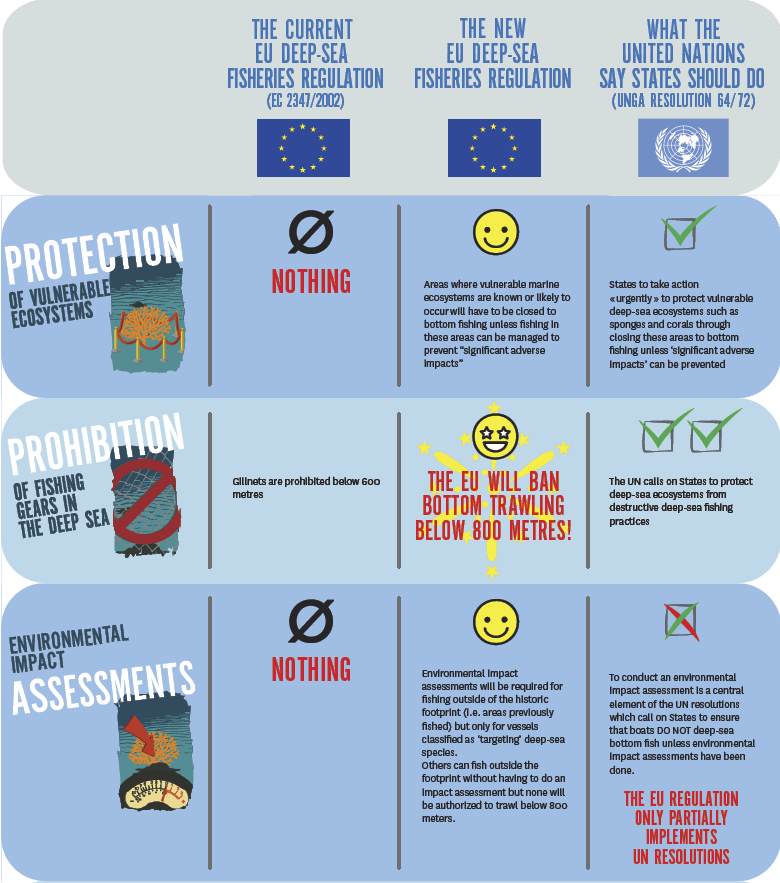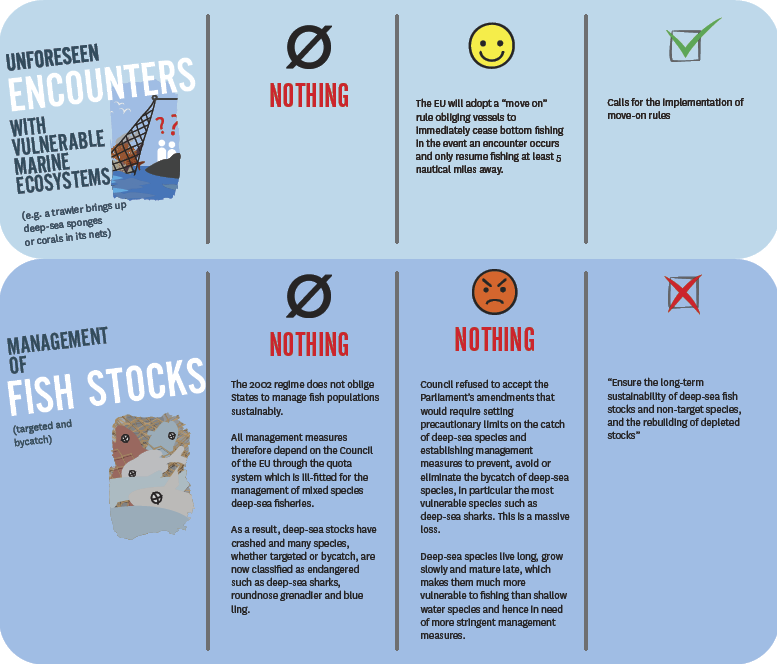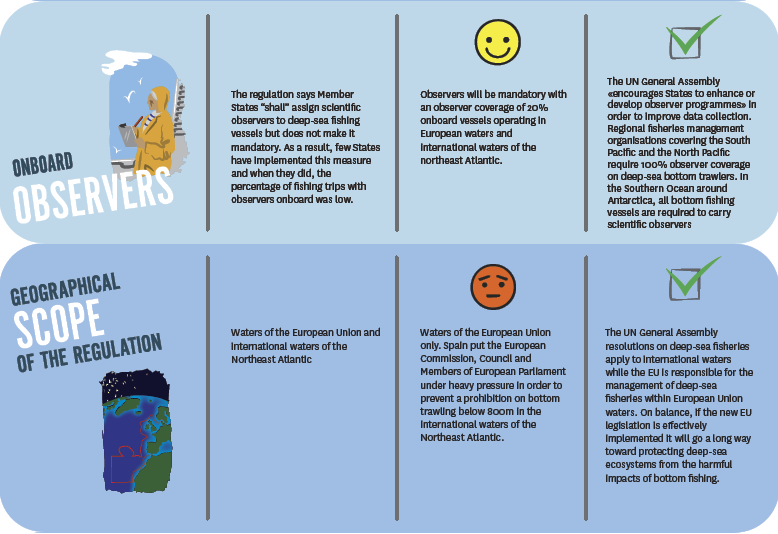Source: Virgin Unite
Author: Claire Nouvian
Hundreds of thousands of citizens, who added their voices to a hard-fought campaign to end one of the most absurd and abominable of all fishing practices, can finally celebrate a major peoples’ victory: the European Parliament, Council and Commission have agreed to a ban on deep-sea bottom trawling.
The resulting new European deep-sea fishing regulation – that still needs to be formally adopted by both the Parliament and Council later this year – will be a vast improvement on the totally deficient 2002 legislation it is replacing, and will help the EU live up to long-neglected UN commitments.
Why are we so excited about this action? Because bottom trawling is an inherently destructive fishing method, which has been compared to the clear-cutting of forests, but at sea. Fisheries policy can sometimes seem incomprehensible and so we’ve created an infographic to simply show how the future EU regulation will improve the management of deep-sea fisheries.

The biggest smile on our graphic is reserved for the centre-piece of the agreement – a prohibition of all deep-sea bottom trawling below 800 metres in all European waters. It’s a ground-breaking achievement that will halt the horrendous underwater deforestation of the deep ocean. It’s what nearly 900,000 people joined BLOOM in calling for in our petition; a thunderous mobilisation of citizens that was impossible for either our law-makers or our supermarkets to ignore, despite the best efforts of fishing industry lobbyists and their friends in Brussels.
Combined with a new legally-binding mechanism for closing any areas with vulnerable marine ecosystems to bottom trawling, plus much stricter requirements for onboard observers and environmental impact assessments, this ban offers real protection for Europe’s rich deep-sea ecosystems.
So, what are we frowning about? Firstly, the ‘Trilogue” consensus sadly did not extend to introducing more stringent measures for managing vulnerable deep-sea fish stocks (Trilogue means the informal negotiations between the EU Parliament, Council and Commission to try and reach early agreement on legislation). The Council rejected the Parliament’s proposals to impose precautionary limits on the catch of deep-sea species and address the massive losses caused by bycatch, including to species like deep-sea sharks. This is a major shortcoming, and one that leaves the new regulation at odds with the stronger provisions agreed to in UN General Assembly resolutions on the deep sea that the EU has pledged to honour.
Virgin Unite, BLOOM

In addition the new regulation is restricted in terms of geographic reach, and it was over this question that different parties to the negotiation showed their true colours. Spain’s repeated threats to torpedo the negotiations unless their trawlers fishing in the international waters of the Northeast Atlantic would not be affected by the deep-sea bottom trawl ban has resulted in a final text that is limited to European waters and the international waters of the Central Eastern Atlantic.
Supportive politicians, Members of the EU Parliament and the efforts of the Dutch Presidency of the European Council salvaged the process in the end and helped ensure the significant result we are now celebrating. But the ban would not have happened without the coming together of massive numbers of citizens who put pressure on the main French fleet to stop deep-sea trawling and kept the negotiations alive.

I’m so proud of the work that BLOOM, the Deep Sea Conservation Coalition, and our partners did to achieve this outcome. Over eight long years, we mobilized people and elected officials, produced scientific and economic evidence showing the absurdity of deep-sea bottom trawling, and obtained this important legislative change. Together we have defended the deep, achieving another milestone towards the construction of a desirable future for the ocean.

